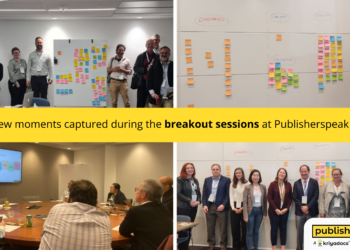The Chronicle of Higher Education has published a story about open access backlash among creative writing students. It’s interesting to see how the battle lines are drawn, and how the terms of a negotiated embargo period at the University of Central Florida protects the works for a period of 5 years (it’s 2 years at Florida State).
While not precisely relevant to any STM debate about open access, it does suggest that if the commercial interests of authors are more directly related to publication, their support of free online access may be reconsidered. Further abstracting this, it then seems that the people most uneasy about open access are those with a commercial interest in the work. Makes sense.
One quote did catch my eye:
Patricia J. Bishop, vice provost and dean of the University of Central Florida, says it has an obligation, as a taxpayer-supported institution, to make theses publicly available. “If we don’t disseminate the work eventually,” she says, “I think we would not be serving the public.”
I think this is just parroting of some STM open access talking points. These are creative writing theses we’re talking about here. The public is having to wrestle with more pedestrian issues like debt from attending college. On the list of priorities, finding creative writing theses online is unlikely to make them feel better about tax or tuition rates.
Discussion
1 Thought on "Open Access Backlash"
From the very outset, the primary target of the Open Access (OA) movement has been the c. 2.5 million articles published annually in the world’s c. 25,000 peer-reviewed journal. It was explicitly stated, again from the very outset (see the 1995 “Subversive Proposal” as well as the 2001 Budapest Open Access Initiative) that OA is only for writings that WANT to be freely accessible: author give-away work, written only for usage and impact, not for royalty income. This excludes most books, textbooks, fee-based magazine articles and all other writings that the author does not want to give away (including some theses, especially creative-writing theses).
It is in the flurry of rather fuzzy enthusiasm for making all “information” free online that OA’s well-wishers have managed to forget the fundamental reason that OA was mad possible by the Internet: It made it possible to give away what the author WANTED to give away (and not what the author did not want to give away).
Stevan Harnad
American Scientist Open Access Forum


